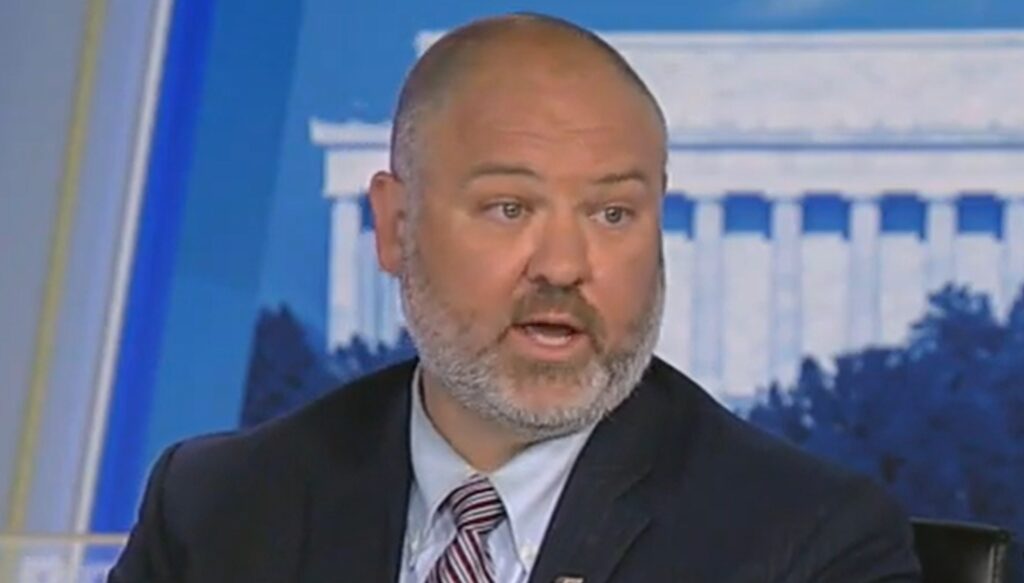n an interview with ‘Special Report’ Bret Baier, IRS whistleblower Gary Shapley provided detailed insights into the findings of the Biden probe. Shapley concluded that the Biden-appointed DC prosecutor declined to pursue charges against Hunter Biden.
Shapley highlighted that crucial steps in the federal investigation were sidelined as the 2020 presidential election drew near, emphasizing that the most significant felony charges were not pursued.
He reiterated his belief that the entire Justice Department’s probe into the president’s son was influenced by political considerations.
“There were definitely hindrances that I’ve never seen before in my 14 years concerning this investigation that didn’t allow us to follow through on an investigation of any other individual to include President Biden,” Shapley told Baier.
Here’s a partial transcript (see video below):
BAIER: So you were clearly prevented? You felt it? you documented it? You knew it?
SHAPLEY: Yes, that’s correct.
And throughout the investigation, I was documenting various issues as they arose, and to include the search warrants that weren’t allowed to be done.
BAIER: What happened with that?
SHAPLEY: Between April and June of 2020, we drafted an affidavit to execute a search warrant in a couple of different locations, and the prosecutors at the time stated that probable cause had been achieved.
But as we moved closer to the election, it just seemed like they kept putting it on the back burner, and they eventually didn’t allow us to do that search warrant, even though the legal requirements to execute that search warrant were met.
Transitioning into another search warrant was on a storage unit in Northern Virginia. And during the day of action December 8 of 2020, we got updated information that said that records were in that location that were — that would be evidence in this particular investigation.
And the prosecutors initially were supportive of it, and an affidavit was drafted the night of December 8, 2020, to go forward for approval. Eventually, the prosecutors decided they didn’t support it. So I called U.S. attorney David Weiss with my senior executive on the phone, and we said we needed to execute this search warrant.
They — he responded that the prosecutors didn’t want to, and I asked if — in 30 days, if that storage unit wasn’t accessed, and that was the deadline for the document request that was served on that day, then we can execute the search warrant? And he agreed to that.
And no sooner I had gotten off the phone with David Weiss had we learned that the prosecutors were informing defense counsel of that storage unit and the evidence that existed there. So, it completely ruined our chance to access those unfettered.
BAIER: What do you think was the reason for the holdup or — usually, you would get that right away. It was a warehouse, right? I mean, it’s not a personal home.
SHAPLEY: That’s correct. I mean, the least intrusive issue is a legal standard in search warrants. And there’s no way, shape or form you can — you could ever claim that going into a storage unit with no individuals would be somehow intrusive.
BAIER: And you believed what was in there was crucial to the case?
SHAPLEY: Yes, we believed so. And — but we will never know now, because we weren’t allowed to access it.
BAIER: And just to be clear, the prosecutors told the defense, and, suddenly, it wasn’t there?
SHAPLEY: I mean, we never accessed that. We don’t know if they ever turned over the documents that were in that location.
BAIER: That happened in interviews as well, as far as sharing information before they happened?
SHAPLEY: So, December 8, 2020, we finally were going over in this investigation, after several delays, which, of course, we were waiting until after the election to execute this, at the direction of the prosecutors and U.S. attorney Weiss on this case.
So, we eventually did a day of action, where we were approaching the subject and several other witnesses. We had a plan of how we were going to approach Hunter Biden that morning. And, ultimately, we found out that, the night before, I was told the FBI headquarters contacted Secret Service and the transition team and told them of the pending action the next day.
So, ultimately, I don’t know how it affected the witnesses, but there was clear opportunity for them to be tipped off before we even approached them. And of the 12 interviews that we attempted, we only received one substantive interview, and that was of Rob Walker.
And that was a very important interview, as the exhibit in the House Ways and Means Committee transcript indicates.
BAIER: The answers that they gave obviously would be prepped, and they would not answer like they would have had you — had they not been tipped off?
SHAPLEY: It’s possible. In our case, they just refused to be interviewed.
BAIER: And was there any explanation ever given for any of them?
SHAPLEY: No.
I mean, we were — as investigators, we were finally overt, and we were finally moving forward, and we thought that we were going to open up a whole new line of things that we can do in the investigation after going overt. So it may have lost a little bit of attention because of that.
WATCH:
[videopress PdGzXcVn]



